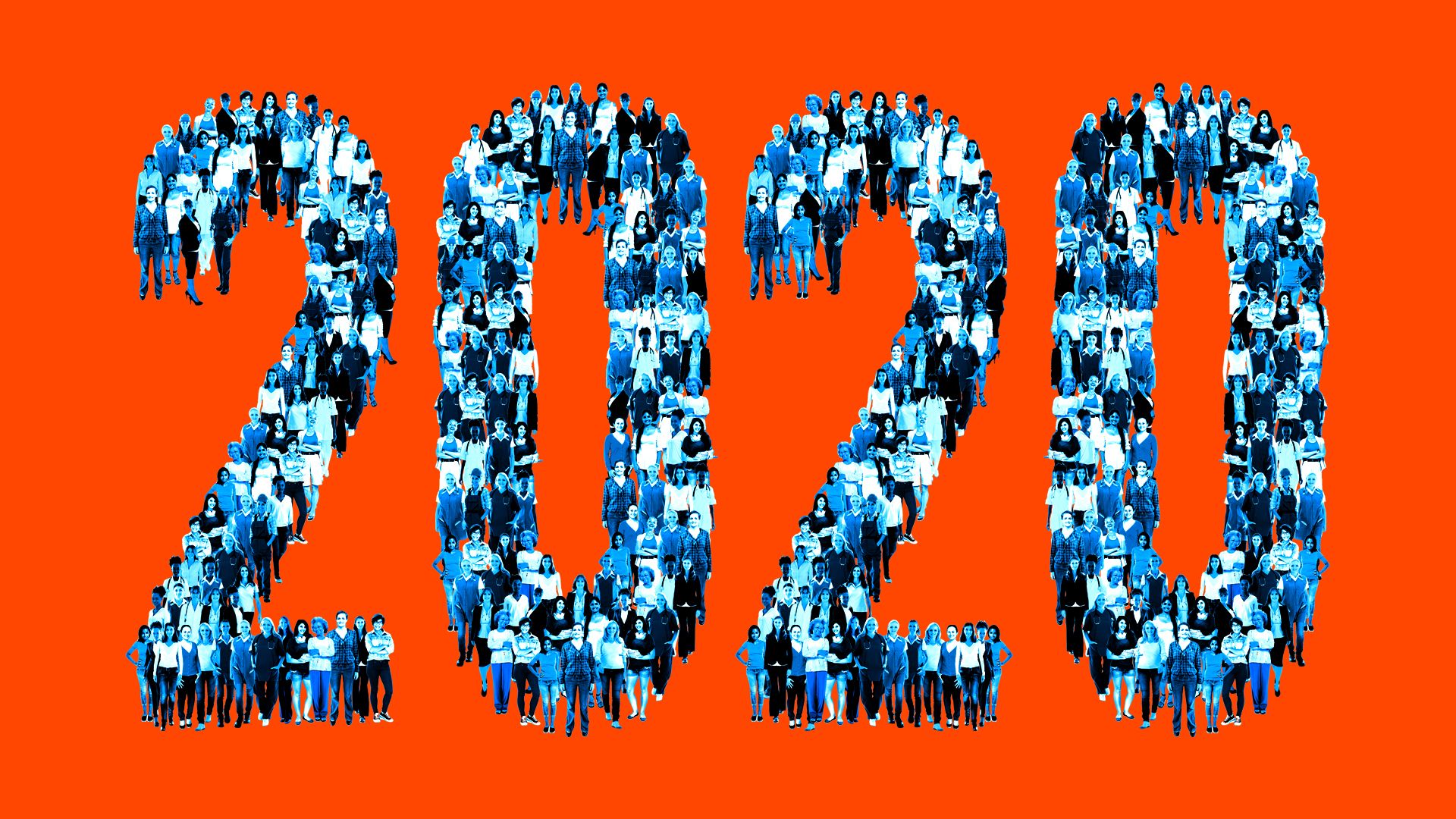
For the 45th president of the United States, 2019 promises to be a difficult year. But in the Democratic camp, finding the best candidate for 2020 will still not be easy.
2019 promises to be a difficult year for Europe, with the possibility of populist parties emerging from May’s European elections in a stronger position and with Great Britain sinking into confusion. But on the other side of the Atlantic, 2019 runs the risk of being, at the least, just as difficult for Donald Trump and the populist cause in the United States.
Americans will certainly not go to the polls in 2019, but the Democratic Party’s selection of its candidate is perhaps the democratic process that will have the largest impact on the state of the world.
Indirectly at least, 2019 will be America’s year. We should approach this fact with a mix of hope and caution. Essentially, Donald Trump is vulnerable, but it would be dangerous to bury him prematurely. Just like in 2016 when very few people predicted that he would win, we should avoid thinking now, as some Democratic commentators do, that anybody but Trump will do the trick. Voters will decide on a man or a woman. In 2016, the Democratic Party’s choice turned out to be a disaster, with the obvious as a result: Hillary Clinton failed to get the votes of too many women and African-Americans.
A Difficult Choice
In 2020, people within these two demographics will have to want to go out and vote for the Democratic candidate, and they will have to want to do so in the same remarkable numbers that they did in the 2018 midterms. Not since the midterm elections of 1974 during the Watergate scandal has the Democratic Party made such large gains in the House of Representatives. But we must not confuse the possibility of victory with its inevitability.
It will all depend on which candidate is chosen. How will voters choose the best possible candidate to face Trump? What criteria will they start with? There is no magic formula. The idea of selecting Trump’s polar opposite is enticing but reductive. Reality is more complex. The first question is: Do we need a career politician or not? Nothing is less certain. Similarly, is it a good idea to focus on the candidate’s personal qualities? Essentially, should the candidate be a young progressive black woman? The choice offered to Americans would thus, in all its diversity, be perfectly clear.
One could also, in a more traditional way, focus on the Democratic candidate’s political, if not ideological, leanings, but that approach is risky. Democrats should not keep moving to the left just because Republicans keep attracting more conservative voters. One could even think the opposite and consider that it is in the center that the battle will be won or lost. The Democratic candidate must canvass widely and attract the most moderate of Republicans without alienating too many radicals in the Democratic Party.
In reality, these intellectually legitimate distinctions are of secondary importance in comparison to another criterion: the candidate’s ability to embody voters’ hopes. People do not vote for a magic formula but rather for a candidate that is made of flesh and blood. Not long ago, it was said in the United States that voters based their decision on two criteria: “Who do I want to have a beer with?” (more of a criteria for men than women), and, no doubt more important, “Who could I stand to see on TV the longest without being overcome by a feeling of visceral disgust?”
As long as Trump’s opponent remains an abstraction, he (or she) has all the charm in the world. He is not Trump. The moment he becomes real, he becomes more vulnerable. Voters will begin to make comparisons. They will do so with a traditional but ever more important question in democracy: who is the person that can, all at once, be the most credible candidate to run against Trump and, once elected, be the best president possible? This is a difficult calculation that has become even more difficult in the day and age of the information revolution.
A Stop to Populism
It nevertheless remains the case that Trump is vulnerable now at the beginning of 2019. Some Democratic commentators are even going so far as to say that he will not run again in 2020. While passing through Paris a few days ago, a “big name” among the American press confided to me his deeply held conviction: “Donald Trump is lazy. Up against accumulating judicial, economic and political difficulties, he is going to declare his mission accomplished. He will say that in one term he has done more than any president before him.” Will he go so far as to negotiate a deal with the justice system of the variety that says: “I won’t run in 2020 if you stop all investigations against me”? My interlocutor did not go that far. The 2018 midterms nonetheless remain, though, the most convincing illustration of Trump’s difficulties. There are 17 criminal investigations concerning the president and his associates. And that total does not include those investigations that will be opened now that the new Democratic majority in the House of Representatives has been sworn in.
The possible return of a “normal” person to the White House in 2020 would certainly mark a stop to populism. It would not necessarily mean, though, that multilateralism and universalist internationalism had returned to the United States. America is going through a “Jacksonian moment” that consists of nationalism, unilateralism and isolationism (a reference to Andrew Jackson, president from 1829 to 1836), which goes beyond Trump.
The election campaign that is unfolding in the United States will once again be a mirror in which the world’s contradictory hopes and fears – and those of democracies in particular – will be reflected.

Leave a Reply
You must be logged in to post a comment.